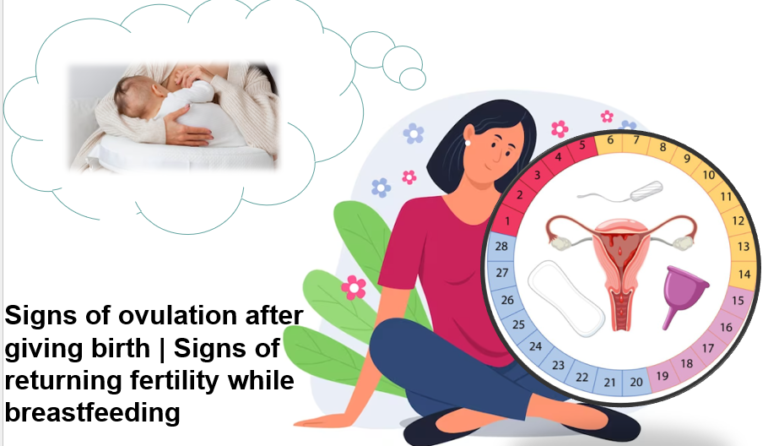Iatrogenic Complications in Pregnancy: A Comprehensive Approach

This blog aims to empower and inform both curious individuals seeking a deeper understanding of iatrogenesis and healthcare professionals dedicated to improving patient safety. In this article, we will delve into the layers of iatrogenesis, examining its definition, significance, prevalence, and the treatments available when it arises.

What is Iatrogenesis Disease During Pregnancy?
Iatrogenesis refers to unintended harm or negative outcomes resulting from medical actions.
When it comes to pregnancy, iatrogenesis can involve complications that arise due to medical procedures, medications, or interventions used during childbirth.
For instance, procedures like amniocentesis or certain medications prescribed during pregnancy can lead to several complications. Ensuring informed decisions and open communication with healthcare providers is crucial to minimize the risk.
What is the Prevalence of Iatrogenesis?
The prevalence of iatrogenesis, or the occurrence of harm or adverse effects caused by medical interventions, can vary widely depending on multiple factors. These factors include:
- Type and frequency of medical interventions
- The skill and experience of healthcare providers
- The health status of the patient
- The specific healthcare setting.

Iatrogenesis can occur due to various medical procedures, interventions, and treatments administered during prenatal care, labor, and delivery. The prevalence of iatrogenesis during pregnancy is influenced by many factors:
- Medical Procedures: Procedures like amniocentesis, chorionic villus sampling (CVS), and certain prenatal screenings carry a small risk of complications, which could contribute to iatrogenesis.
- Medications: The use of medications during pregnancy can result in unintended side effects for both the mother and the fetus, leading to iatrogenesis.
- Interventions During Childbirth: Interventions like cesarean sections, assisted vaginal deliveries (using forceps or vacuum extraction), and induction of labor can have varying levels of risk for complications that might contribute to iatrogenesis.
- Healthcare Settings: The quality of healthcare facilities, the expertise of healthcare providers, and the level of prenatal and postpartum care can influence the prevalence of iatrogenesis.
- Patient Health and Medical History: The health status and medical history of the pregnant individual also play a role. Preexisting conditions or complications can increase the risk of iatrogenesis.
- Informed Decision-Making: The prevalence of iatrogenesis can also be affected by how well patients and healthcare providers communicate to make informed decisions.
It’s important to note that the majority of medical interventions are carried out to improve health outcomes.The medical community continuously strives to minimize the risks associated with interventions through evidence-based practices, guidelines, and advancements in medical technology.

What Are the Treatments for Iatrogenesis?
The treatments for iatrogenesis, which refers to harm or adverse effects caused by medical interventions; will vary depending on the specific complications that have arisen. The focus of treatment is typically on addressing the immediate harm.
Here are some general approaches:
- Medical Intervention Reversal: In some cases, if the iatrogenic harm is due to a specific medical procedure or treatment, the first step may be to reverse or mitigate the effects of that intervention. This could involve administering antidotes, discontinuing certain medications, or even performing corrective procedures if feasible.
- Symptomatic Treatment: If the iatrogenesis has resulted in symptoms or complications, healthcare providers will often focus on managing those symptoms. This might involve providing pain relief, addressing infections, or stabilizing vital signs.
- Supportive Care: Patients may require supportive care to aid their recovery. This can include maintaining hydration and nutrition, ensuring proper wound care, and providing emotional support.
- Monitoring and Observation: Patients who have experienced iatrogenesis may need close monitoring to ensure that their condition.
- Collaborative Care: In complex cases, a multidisciplinary approach might be necessary. Specialists from various medical fields might collaborate to manage different aspects of the patient’s health.
- Preventive Measures: Once the immediate concerns are addressed, healthcare providers may work with the patient to develop a plan. This could involve adjusting treatment plans, avoiding certain interventions in the future, or closely monitoring.
- Communication and Education: Patients and their families should be informed about the iatrogenic complication. The steps being taken to address it should be also discussed, and what they can do to.
It’s important to remember that the appropriate treatment for iatrogenesis depends on the specific circumstances and complications involved. The medical team will assess the situation, consider the patient’s overall health, and tailor the treatment plan accordingly.
Addition information for the readers:
To navigate the aftermath of iatrogenesis, open and honest communication between patients and healthcare providers is essential. Patients should actively participate in their healthcare decisions and advocate for their well-being.While healthcare providers should prioritize patient safety and work to minimize the risk of iatrogenesis in the future.
Conclusion
Iatrogenesis is a complex issue that underscores the importance of careful decision-making and communication in healthcare, particularly during pregnancy. While medical interventions can be essential for maternal and fetal health, understanding the potential risks and benefits is vital. By actively participating in your healthcare decisions you can contribute to a safer and healthier pregnancy journey.
Frequently Asked Questions:
- What is the meaning of iatrogenesis?
Iatrogenesis refers to harm or adverse effects caused unintentionally by medical treatments, procedures, or interventions.
2. How is iatrogenesis pronounced?
It is pronounced “eye-at-roh-JEN-uh-sis.”
3. Can you provide an example of iatrogenesis?
An example of iatrogenesis is when a medical procedure meant to diagnose a condition leads to complications such as infection or miscarriage during pregnancy.
NOTE TO READER: Remember, every pregnancy is unique, and discussing your concerns and preferences with healthcare professionals is crucial to making informed decisions about medical interventions and ensuring a safe and healthy pregnancy journey.













+ There are no comments
Add yours